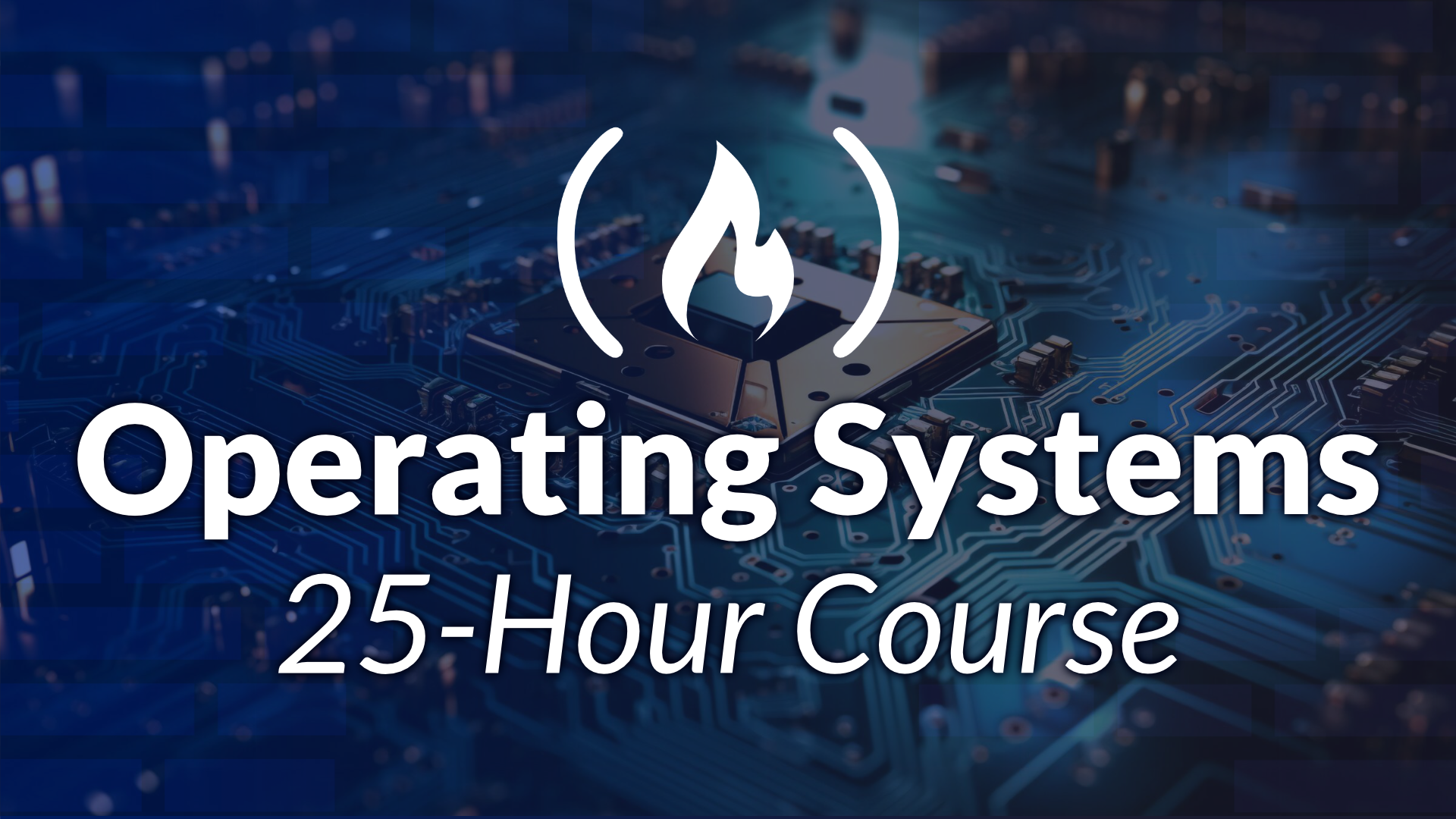For many types of software engineers it is important to understand the fundamentals of operating systems.
We just published a massive 25-hour course on the freeCodeCamp.org YouTube channel that will help you master the fundamentals of operating systems. This course is designed to provide an academically oriented and comprehensive understanding of Operating Systems (OS), making it one of the most detailed OS courses available. Kshitij Sharma created this course.
Course Content
Here are the key things you will learn in this course:
Academically Oriented & Comprehensive Understanding: Dive deep into the intricacies of Operating Systems with the most detailed course on this platform.
Conceptual Clarity: Solve numerous practice questions to ensure your concepts are crystal clear.
Enhanced Problem-Solving Skills: Learn to analyze and solve complex OS-related problems.
Appreciation for Depth: Explore a wide range of OS topics with meticulous attention to detail.
And here are the key sections in the course:
1. Introduction and Background
Defining an OS: Understand OS through multiple definitions, Von Neumann Architecture, and the significance of main memory.
Types of OS: Explore uni-programming, multiprogramming, and multitasking OS, along with their architectural requirements.
User and Kernel Mode Shifting: Learn about APIs, system calls, interrupts, and mode shifting perspectives.
2. Process Management
Understanding Processes: Distinguish between programs and processes, and delve into process attributes and operations.
Process Transition Diagram: Study different process states, schedulers, and dispatchers.
Scheduling Queues and State Queuing Diagrams: Examine schedulers, dispatchers, and context switching in detail.
3. CPU Scheduling
Introduction and Process Times: Implement short-term schedulers and understand various process times.
FCFS, SJF, HRRN, LRTF, Round Robin, and Priority-Based Scheduling: Learn and practice different CPU scheduling algorithms.
4. Process Synchronization / Coordination
IPC and Synchronization: Explore race conditions, producer-consumer problems, synchronization mechanisms, and semaphores.
Deadlock: Understand deadlock concepts, resource allocation graphs, handling strategies, and algorithms like Banker's Algorithm.
5. Memory Management
Memory Management Techniques: Study static vs dynamic loading, partition allocation, paging, segmentation, and virtual memory.
Problem Solving: Engage in extensive problem-solving sessions to reinforce your understanding.
6. File Management
- Disk Structure and File Systems: Learn about disk structures, file vs directory, file system implementation, and disk scheduling algorithms.
Conclusion
This course is ideal for university students looking to enhance their academic understanding of Operating Systems, GATE aspirants preparing comprehensively for their exams, and anyone wanting to build a rock-solid foundation in OS fundamentals. To get the most out of this course, a basic understanding of C and Computer Organization and Architecture (COA) concepts is recommended.
Watch the full course on the freeCodeCamp.org YouTube channel (25-hour watch).

